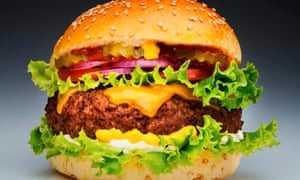Our Food Senses Aren’t Accurate
Our brains are not reliable food sensors, and our taste buds are affected not just by the food that we put in our mouths, but a variety of electrical signals from our brain, body and all the other sense organs.
22
239 reads
The idea is part of this collection:
Learn more about food with this collection
How to strengthen your willpower
How to overcome temptation and distractions
The role of motivation in willpower
Related collections
Similar ideas to Our Food Senses Aren’t Accurate
Drinking Coffee: How Our Senses Work
When we drink a cup of coffee, we detect it using the receptors of our bodies, and that information is then converted into activated neurons. Waves of light are converted into colors, with the mouth receptors trying to classify the beverage as one of the five basic tastes: salty, sour, bitter, sw...
Creating Healthier Foods
Apart from the various signals being measured, there are other things like sweat, pupil dilation and gastronomical signals that are recent discoveries of how the brain works, as the scientists try to bypass the biases of people and capture the subjective taste differences.
The research can...
Food and dopamine
Food-seeking learning is driven by dopamine, a neurotransmitter connected with motivation.
This is a hormone that is stimulated in the brain when your body does something rewarding, such as eating. Dopamine is one of the chemical signals that passes information between neurons to tell your...
Read & Learn
20x Faster
without
deepstash
with
deepstash
with
deepstash
Personalized microlearning
—
100+ Learning Journeys
—
Access to 200,000+ ideas
—
Access to the mobile app
—
Unlimited idea saving
—
—
Unlimited history
—
—
Unlimited listening to ideas
—
—
Downloading & offline access
—
—
Supercharge your mind with one idea per day
Enter your email and spend 1 minute every day to learn something new.
I agree to receive email updates
